The Pros and Cons of DC & Marvel on TV
"Is DC squandering its television supremacy?"
Unless you have been living under a rock for the past few years, you’re well aware that we are living in the age of the superhero movie. Better yet, we’re living in the age of the live-action large team superhero movie, with the X-Men fully rebooted, the Avengers getting ready for their second attempt at shattering box office records, and Batman teaming up with Superman, in hopes of laying the groundwork for a future Justice League movie franchise. But, until recently, those of us getting a bit tired of the constant barrage of heroes on the big screen could still turn to the small screen to get our daily dose of non-hero drama and comedy. However, even that has begun to change.
Now, live-action television adaptations of comic heroes have been around for decades. There was the classic Adam West-fronted
Batman series of the 1960s, Linda Carter’s
Wonder Woman in the 1970s, and, to pull from my own childhood, the Dean Cain-Terri Hatcher lead
Lois and Clark: The New Adventures of Superman in the 1990s. But what’s coming to fruition on television right now is something that has never happened before: multiple networks with multiple live-action comic-based series.
Just this fall alone, there are five comic-based series on network television:
Constantine on NBC,
Gotham on Fox,
Agents of S.H.I.E.L.D. on ABC, and
Arrow as well as
The Flash on the CW. In 2015, ABC will roll-out
Agent Carter during
S.H.I.E.L.D.’s winter hiatus, while Netflix will jump into the comic game, set to begin rolling out the initial wave of the streaming site’s four series Marvel commitment next year, beginning with
Daredevil, and followed with the staggered release of
Jessica Jones,
Iron Fist, and
Luke Cage over time.
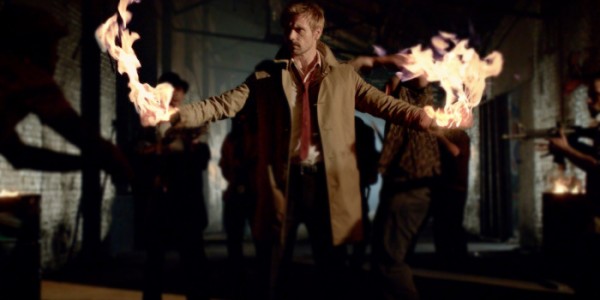
This recent influx of comic and superhero-based television isn’t a bad thing by any stretch of the imagination.
Arrow is a very well-constructed series, and
Gotham has shown strong promise during its first two episodes (as well as shown strength in the ratings, which is impressive in itself). However, the wealth of comic-based television series have created some interesting situations, namely a large imbalance between DC and Marvel produced shows on TV.
Over the past decade, it’s been clear that Marvel has won the war of the box office, churning out a variety of films (albeit, not all of them under the Marvel Studios banner, as both the X-Men and Spiderman were licensed to Fox and Sony respectively) that have dominated the box office. There certainly have been DC successes (the Christopher Nolan-helmed Batman trilogy was a particular high point), but chances are, when having a conversation about the so-called superhero film boom, the bulk of the discussion centers on Marvel entities.
The exact opposite has been true about the television landscape. In fact, over the course of the last 50 years, not counting animated adaptations, the vast majority of televised adaptations of comic characters have come from the world of DC comics. Just looking at the current crop of television options, four of the five are adapted from DC. And, while DC is attempting to make a push to re-capture the film audiences, with an apparent plan to launch their own massive superhero franchise to compete with Marvel’s succes
sful Avengers family of films, it’s clear Marvel is trying to dive into the television world as well.
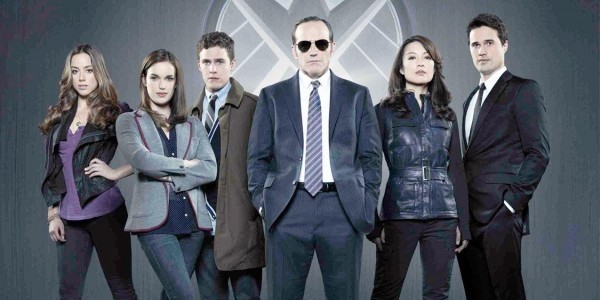
But is it too little too late on the part of both studios? From a television stand point, it just might be. Marvel’s sole television offering,
Agents of S.H.I.E.L.D. has failed to find the magic that its film brethren have harnessed. Despite having Joss Whedon pulling the strings as an executive producer, and his more than capable brother and sister-in-law Jed Whedon and Maurissa Tancharoen serving as the series’ showrunners, things have been pretty bleak for the series. Marvel has thrown everything but the kitchen sink at the series, and still ratings have been much lower than anticipated. Sure, it didn’t help that the front half of the show’s first season was pretty much a mess (despite the use of characters from the Marvel film universe, including series star Clark Gregg, reprising his role as the fan favorite- and previously deceased- Agent Coulsen). It wasn’t until the show delved into the Hydra-S.H.I.E.L.D. storyline in the back half of the season (drawing from the events that occurred in the
Captain America: Winter Soldier film) that the show finally found its groove. However, early ratings from the show’s sophomore season indicate that even using tie-ins with the enormously popular Marvel film universe might not be enough to save the series.
On the filp-side, there are the DC properties. Spread out over three different networks, the shows each focus on lesser-known members of the DC cannon: the Green Arrow and the Flash on the CW, Constantine on NBC, and Detective Jim Gordon on
Gotham. Sure, there are familiar supporting characters on several of the programs, but the shows all lack the splashy links to the big DC heroes.
Gotham comes the closest to cashing in on the Batman world, but its super villains are either children (in the case of Poison Ivy and Catwoman) or not yet fully formed into their dastardly selves. Even Batman appears, albeit in the form of a 13 year old boy who has just suffered the death of his parents. It will be years before he’s ready to throw on his cape and save the city.
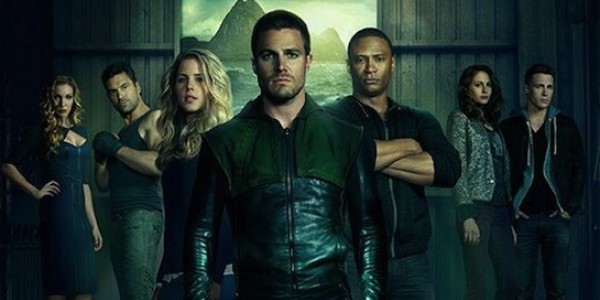
The most interesting aspect of these DC-supported shows (as all the different showrunners report having repeated conversations with people at DC command regarding storylines and the various villains they are allowed to introduce) is that there appears to be a distinct disconnect between the DC television world and the DC film world. Unlike on
Agents of S.H.I.E.L.D., someone of the stature of Nick Fury won’t suddenly pop into Starling City. Jim Gordon won’t be calling up John Constantine for advice on a crime spree. Aside from
Arrow and
The Flash, which will air on the same network and have already done some crossover work in the form of a backdoor pilot episode last spring, these are not meant to be shared universes.
While, so far, this isn’t all that strange, it could eventually become an issue with the DC movie world down the line. DC is hell-bent on making a Justice League film. And, while there are certainly a large number of potential heroes to choose from to flesh out the cast, I have a hard time imagining a Justice League film without the Flash. So what happens when there’s a Flash on television and a different Flash in the movies? Obviously, the common thing would be to simply say the TV world and the film world are separate universes (which, is precisely what DC has said so far). But when Marvel is already taking steps to clearly merge the two mediums, will DC cede any ground it has gained in the TV battle by refusing to do the same?
Marvel’s choice to treat television and film as one single giant universe means that fans of one benefit by becoming fans of the other. If Lady Sif appears on
Agents of S.H.I.E.L.D., it’s the same actress and character who appears in the Thor films. This strategy increases the brand appeal exponentially and keeps people talking about Marvel even when films aren’t in the theaters. It’s a genius marketing plan. But it also has risks. The major risk? Alienating a section of new viewers who fear that they might not understand the television offshoots of the Marvel universe if they haven’t watch the entire Marvel film cannon. This is something that
S.H.I.E.L.D. certainly struggled with and perhaps is something that the series is still trying to rebound from (particularly in light of the second half of its inaugural season which, while certainly stronger from a story perspective, relied very heavily on the film universe).
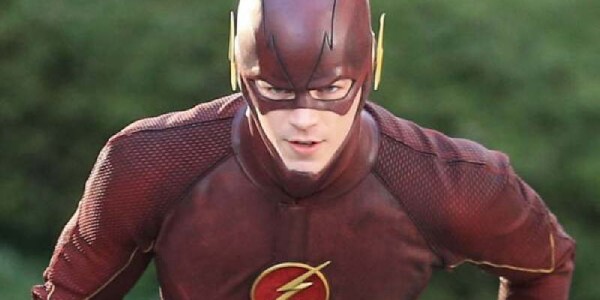
DC, on the other hand, is saying that if you are a fan of Stephen Amell on
Arrow (and, if you’ve seen the show, you really can’t help but become a fan of Amell), that’s great. But if the Green Arrow pops up in a film, you’ll have to get used to someone else.
While I can understand DC wanting to keep the door open for more high profile actors to take film roles, this “never the two shall meet” policy advocated by DC serves to drive a wedge between television and film audiences. It promotes the idea that film is where DC is focusing its time and energy, and while it does care about its television entities, they aren’t truly connected to the sprawling film universe DC is seeking to build. Considering DC’s spotty film record over the past ten years (with only the Nolan Batman series drawing both commercial and critical success), I’m not sure DC should be looking at the current success of its television incarnations as less important. It hits me as a major loss of cross-promotional options by segmenting television and film into two distinct niche areas. Yes, there is the chance of running into the
S.H.I.E.L.D. conundrum, but I cannot imagine it would be impossible to find a way to tie-in a film to a particular television series in a way that allowed fans of the film universe to enjoy the appearance as much as fans of the television series. It does bring up the issue of having multiple titles across multiple networks, and the inability to cross-over within those series (already, this has popped up on
Gotham, with the series using the Dollmaker as a villain, who was used previously as a villain on
Arrow). But a throw-away line or minor appearance one in a while might not be too much to ask- particularly with the CW properties, who are already linked together.
With a television series, there is a chance to repeatedly reach a wide swath of viewers week in and week out, building a fanbase that might not normally look at a comic-based film or television series. I know a 60 year old woman, not your typical comic fan, who watched
Gotham because it intrigued her with its marketing campaign and now she’s hooked. Personally, I knew nothing about Green Arrow prior to sampling
Arrow (much to my DC fan boy father’s dismay), but I’m now a big fan not only of that universe, but I’m learning more and more about DC comics every day (I was a Marvel kid growing up, so I clearly missed out on a lot of DC stories and characters).
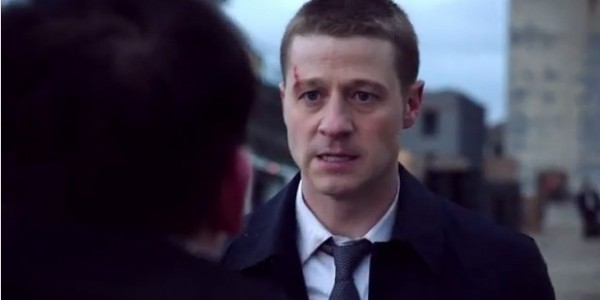
It certainly doesn’t look like DC is planning on changing its separate universe plan any time soon (although, the DC television world will be expanding in the future, with CBS optioning
Supergirl to pilot- although whether it will end up on the eye network- a potential misstep, considering the network’s current make-up and viewer skew- or be sold to another network is still something for future discussion), but I have a feeling that the vision for the DC future will be more malleable as the inevitable Justice League film nears its start. On the Marvel side of the coin, with
S.H.I.E.L.D. still suffering in the ratings, it might be time to begin reassessing the state of the comic giant’s own television footprint.
No matter where things currently stand, this is quite the time for comic fans on television. There are a number of heroes- both super and other- to follow from week to week and a number of interesting points of view for all of those who might be interested in watching. While you certainly don’t need to come into any of the programs with a wide knowledge of the comic world, depending on which sandbox you opt to jump into, some further digging may be needed. As network television continues to evolve- and hemorrhage viewers to cable and beyond- superheroes may be network TV’s last great hope of drawing new eyeballs, while still working to help expand the already massive reach of comic films. Who knows, in ten years we could be talking about how superheroes saved both television and film. Until then, I know I’ll keep watching.
 It certainly doesn’t look like DC is planning on changing its separate universe plan any time soon (although, the DC television world will be expanding in the future, with CBS optioning Supergirl to pilot- although whether it will end up on the eye network- a potential misstep, considering the network’s current make-up and viewer skew- or be sold to another network is still something for future discussion), but I have a feeling that the vision for the DC future will be more malleable as the inevitable Justice League film nears its start. On the Marvel side of the coin, with S.H.I.E.L.D. still suffering in the ratings, it might be time to begin reassessing the state of the comic giant’s own television footprint.
No matter where things currently stand, this is quite the time for comic fans on television. There are a number of heroes- both super and other- to follow from week to week and a number of interesting points of view for all of those who might be interested in watching. While you certainly don’t need to come into any of the programs with a wide knowledge of the comic world, depending on which sandbox you opt to jump into, some further digging may be needed. As network television continues to evolve- and hemorrhage viewers to cable and beyond- superheroes may be network TV’s last great hope of drawing new eyeballs, while still working to help expand the already massive reach of comic films. Who knows, in ten years we could be talking about how superheroes saved both television and film. Until then, I know I’ll keep watching.
It certainly doesn’t look like DC is planning on changing its separate universe plan any time soon (although, the DC television world will be expanding in the future, with CBS optioning Supergirl to pilot- although whether it will end up on the eye network- a potential misstep, considering the network’s current make-up and viewer skew- or be sold to another network is still something for future discussion), but I have a feeling that the vision for the DC future will be more malleable as the inevitable Justice League film nears its start. On the Marvel side of the coin, with S.H.I.E.L.D. still suffering in the ratings, it might be time to begin reassessing the state of the comic giant’s own television footprint.
No matter where things currently stand, this is quite the time for comic fans on television. There are a number of heroes- both super and other- to follow from week to week and a number of interesting points of view for all of those who might be interested in watching. While you certainly don’t need to come into any of the programs with a wide knowledge of the comic world, depending on which sandbox you opt to jump into, some further digging may be needed. As network television continues to evolve- and hemorrhage viewers to cable and beyond- superheroes may be network TV’s last great hope of drawing new eyeballs, while still working to help expand the already massive reach of comic films. Who knows, in ten years we could be talking about how superheroes saved both television and film. Until then, I know I’ll keep watching.